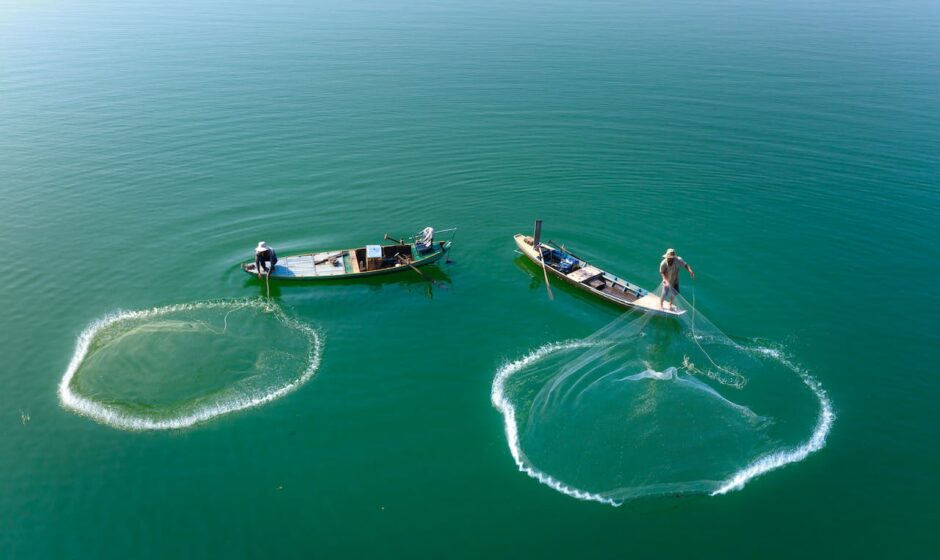The world’s food production has witnessed a remarkable transformation over the past century. Technological advancements have revolutionized agriculture, dramatically reducing the need for human labor while simultaneously increasing yields. This trend, however, has not translated equally to the global marine food system. While technology has undoubtedly played a role in fisheries, its impact on labor and overall productivity paints a concerning picture.
A recent study, published in Nature Sustainability, sheds light on this critical issue. Researchers reconstructed the global number of marine fishers from 1950 to 2015, revealing a startling trend: despite significant advancements in technology, the total number of fishers continued to grow. This increase, mainly driven by lower- and middle-income countries, outpaced the 60% decrease observed in higher-income nations.
The consequences are starkly evident in declining catch per fisher. Since the 1990s, this crucial metric has steadily decreased despite major technological leaps. This stands in stark contrast to the 70% increase in production per farmer achieved in terrestrial agriculture during the same period.
The study’s findings paint a worrying picture: global fisheries are experiencing diminishing, and even negative, returns on labor. This has profound implications for food production efficiency, marine ecosystems, and the livelihoods of fishing communities.
Data & References:
- Rashid Sumaila, Louise Teh, Jessica Meeuwig, Christopher Costello, Simon Jennings (2023). Diminishing returns on labour in the global marine food system. Nature Sustainability. doi: 10.1038/s41893-023-01249-8
- Food and Agriculture Organization of the United Nations (FAO) (2022). The State of World Fisheries and Aquaculture 2022. Rome: FAO. doi:10.4060/ca92300en
- World Bank (2022). World Development Indicators. Accessed online: https://data.worldbank.org/
- Cheung, W. W., Lam, V. W., Sarmiento, J. L., Kearney, K., Watson, R., & Pauly, D. (2010). Projecting global marine biodiversity impacts under climate change scenarios. Fish and Fisheries, 11(3), 235-251.
- Pauly, D., Alder, J., Booth, S., Cheung, W. W., Christensen, V., Froese, R., & Zeller, D. (2003). Global Fisheries: A Brief Review. Reviews in Fish Biology and Fisheries, 13(3), 3-26.
Additional Concerns:
- Overfishing: The study’s findings raise concerns about overfishing, which continues to threaten the sustainability of many fish stocks.
- Social and Economic Impact: Diminishing returns on labor can have severe social and economic consequences for fishing communities, particularly in developing countries.
- Food Security: The decline in catch per fisher poses a challenge to food security, especially in regions heavily reliant on marine protein.
Potential Solutions:
- Sustainable Fishing Practices: Implementing and enforcing sustainable fishing practices is crucial to ensure the long-term health of fish stocks and the livelihoods of fishers.
- Technological Innovation: Investing in technologies that promote efficient and sustainable fishing practices can improve productivity and reduce labor inputs.
- Diversification: Exploring alternative sources of income for fishing communities can help reduce reliance on fishing and mitigate the impact of diminishing returns.
- International Cooperation: Effective international cooperation is necessary to manage fisheries resources sustainably and combat illegal fishing practices.
Conclusion:
The diminishing returns on labor in global fisheries pose a significant threat to the future of the marine food system. Addressing this challenge requires a multi-pronged approach that includes sustainable fishing practices, technological innovation, diversification, and international cooperation. By taking action now, we can ensure the long-term sustainability of this vital resource and protect the livelihoods of millions who depend on it.

